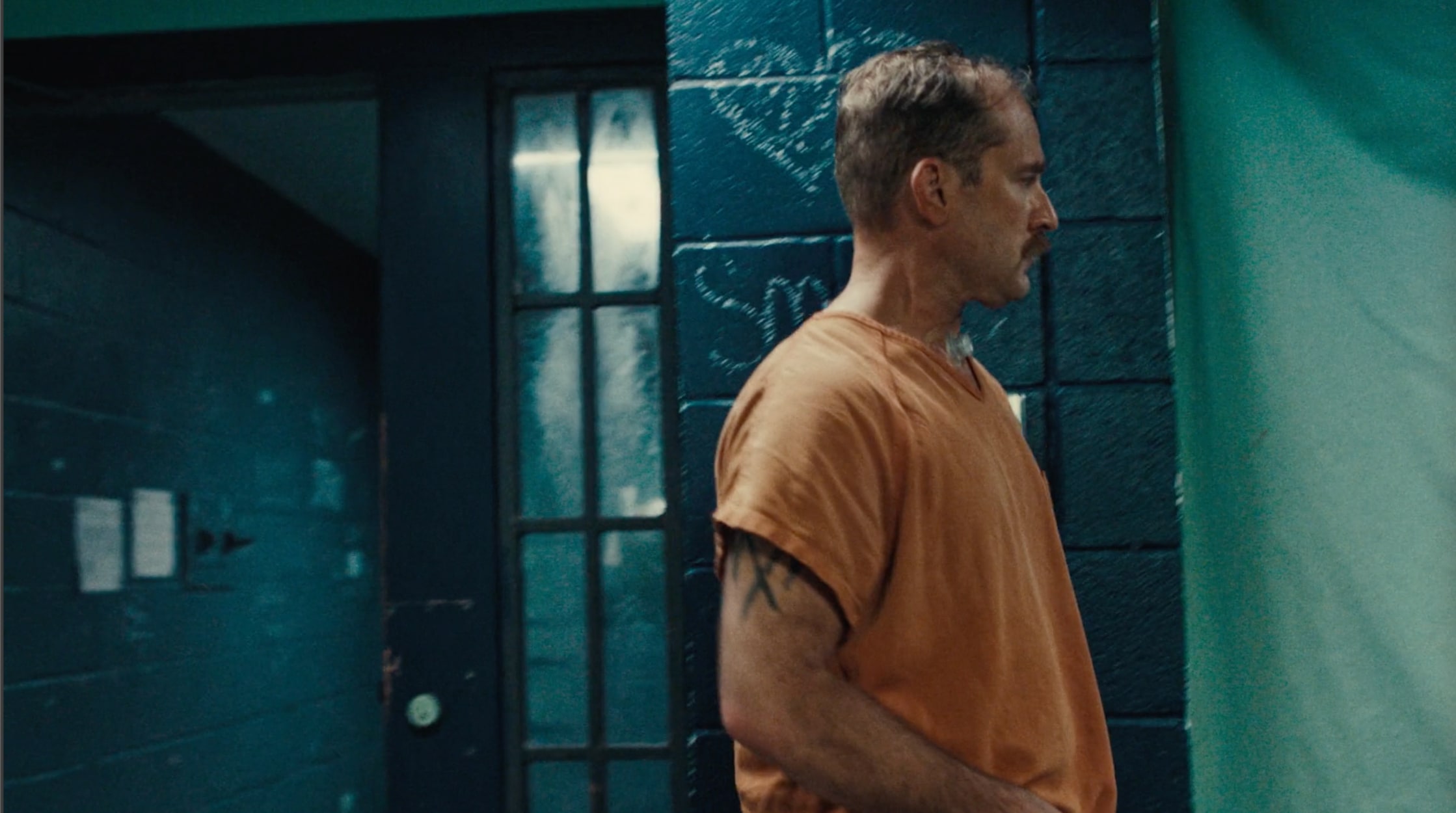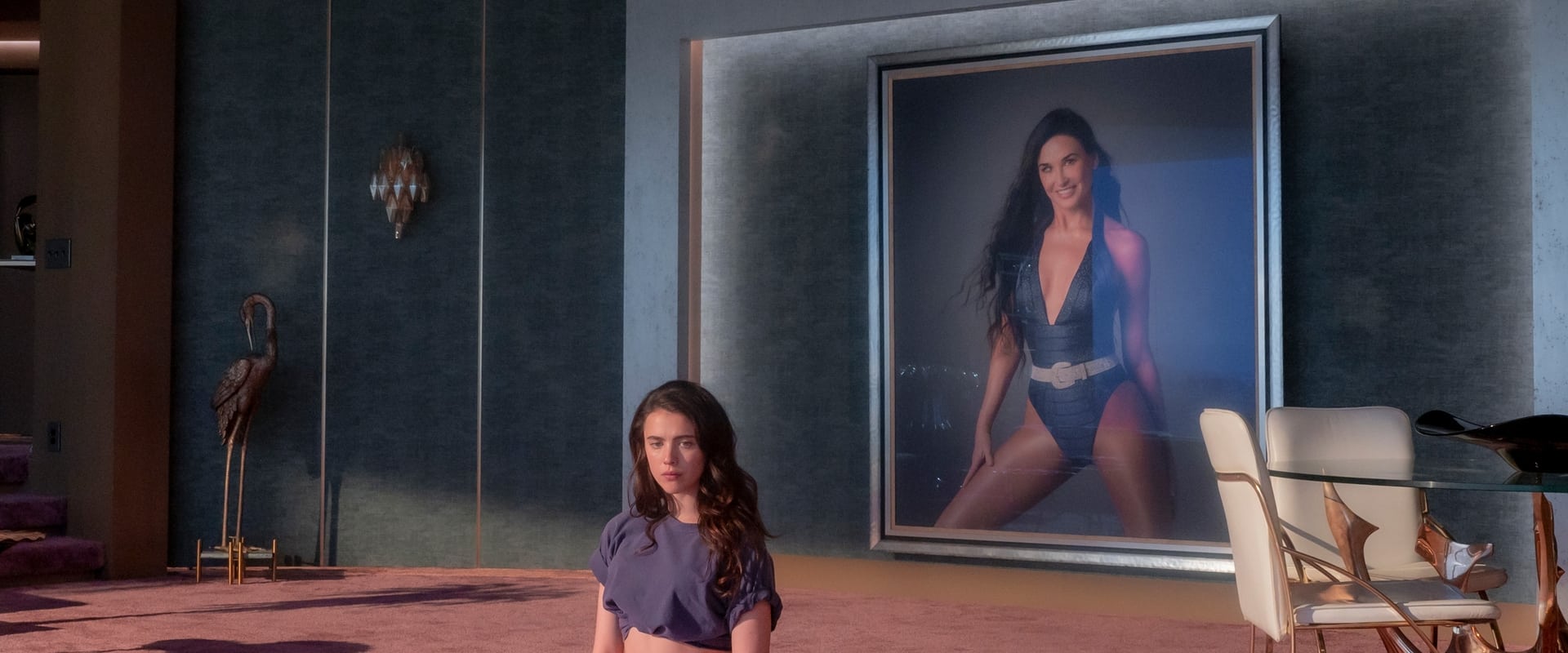This review contains spoilers.
King Ivory comes packaged with all the signifiers and promises that Hollywood (or its independent outposts) have learned to wield like weapons: “Based on extensive research”, the first phrase that glimmers in the dark like a parolee’s tattoo, ready to be flashed for credibility before the first shank hits the yard. John Swab, the director, claims proximity, he knows this world, these corners of Tulsa, these prison phone banks and gangland protocols. But proximity is not the same as revelation. King Ivory isn’t the first to slip you a look behind the penitentiary curtain and, unfortunately, it still leaves you peering through the mesh.
It’s not that I don’t believe Swab did his homework. The film bristles with the flavor of detail, the coded gestures of men who move contraband like rosary beads, and the bureaucracy of backroom deals funneling death throughout the Midwest. Scenes bristle with authenticity: convicts signaling in mutely theatrical semaphore, the clatter of hi-vis tattoos over muscle and disillusionment. But unless you’ve already memorized the criminal argot or spent nights deciphering the anthropological hieroglyphs of gangland Americana, the verisimilitude is coded, locked away from us as securely as the Oklahoma State Penitentiary itself. Extensive research, yes; articulate exposition, no. The “never-before-seen” is left largely unseen.
There’s a ghost of a better film looming over King Ivory, one can’t help but recall Shot Caller, with its feverish, relentless focus inside prison walls, and how it fuses the machinery of survival with a single man's damnation. Maybe it’s the jailhouse tattoos, the economy of violence, or the way both films try to braid illegal business through every compromised soul. But where Shot Caller pressed its knuckles to your throat and never let up, this film draws the outline and then steps back, a lighter sketch, never quite risking enough to make your hands sweat.
Yet for all that, let’s be honest, prisons, tattoos, gangland rituals, and the cruel charisma of Ben Foster are still the kind of movie bait that will get me every time. The trouble is, with a cast that includes James Badge Dale (stoic, hunched, yet whose moral weariness feels like wardrobe) and Ben Foster (perpetually simmering with a kind of blue steel insanity Hollywood so rarely knows how to use), you crave not just a magpie’s collection of criminal subplots but a rough, beating, all-consuming underworld novel. King Ivory instead gives us piecemeal echoes, scenes that seem to recognize their own grit, but lack the opportunity to let it all settle under the skin.
If only this film had been given the space of a series, the time to linger in cells and side streets, in the delivery trace of GPS-dropped drugs. The architecture is there: a “call center” for narcotics, cartels sending texted bread crumbs to desperate dealers, the prison gangs weaving their authority with all the ruthless imagination of any corporate headquarters. These are snippets of a far more ambitious and fascinating tapestry. But at just over two hours, Swab is forced to hurry the camera along; we skate across the muscular expanse of Ben Foster’s “Smiley” (whose introduction crackles with pulp menace, two executions in, and you can smell the sweat and blood), only to watch him recede as the film busies itself connecting a web of subplots and participants. Foster, who could have staked out the movie’s heart like a kingpin or a martyr, or both, is practically reduced to a cameo by act two.
King Ivory aches to tie every thread, smuggled pills and broken families, the cop (James Badge Dale) with a toxified son whose tragic romance is spelled out like a death sentence, to the vastness of the opioid crisis. But grimly, inevitably, the emotional impact is pre-diluted. The moment Colby introduces Jack to fentanyl, we’re already waiting for the body count: a girl dies, the boyfriend spirals, anguish is enacted with all the obligatory hysteria, but the film’s treatment of loss feels like stunned autopilot. People die every day; here, it glides past, neither a howl nor a shudder, more a narrative checkpoint than a wound. The mechanical structure of tragedy displaces its human weight, the screen becomes a coroner’s sheet, dutifully registering another number.
For a movie hawked as documentary-adjacent, it defaults to cop thriller entertainment, and even the procedural interest (well-observed police work, the mechanics of how “Big Mac” directs Oklahoma’s drug trade from within walls) is parceled with all the urgency and depth of a season’s worth of stories crammed into two hours. The result: familiar types and recycled moral equations, if you’ve seen Dopesick, Breaking Bad, if you’ve even idly watched cable crime dramas at 2:00AM, you’ll recognize every ghost in King Ivory’s gallery. The truth of the fentanyl era, its obliterating power, its corruption of lives on a molecular, societal scale, remains something only hinted at.
Still, it’s not a disaster. Swab’s direction sometimes crackles; action scenes are staged with the proper snap, and the film’s tragedies are never less than watchable. But “watchable” is a modest epitaph for a movie whose subject should be a gaping, howling wound in American life. King Ivory doesn’t stain your hands, doesn’t sink into your skin. It leaves you only idly disturbed: interested while it lasts, but never haunted.
There’s a good film, maybe a great series, somewhere here. But King Ivory, for all its ambition, is content to stand outside the prison gates, listening to the stories echo off the concrete, and then driving home. The afterimage? A low good, like a drug cut too many times; you feel the rush coming, but the high never quite hits like you hoped.


